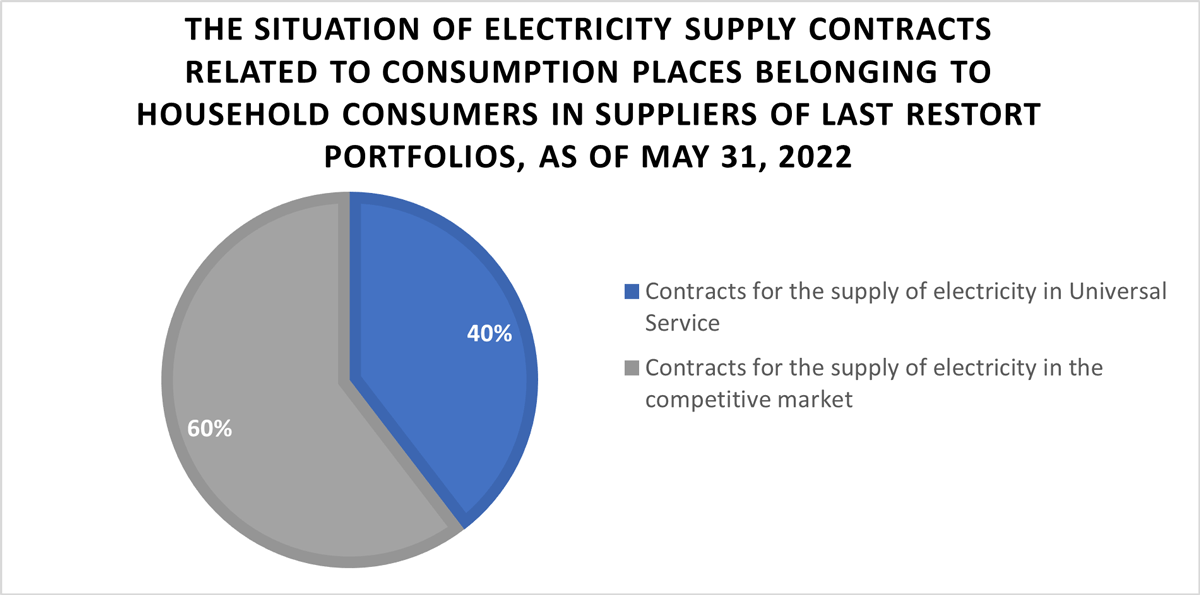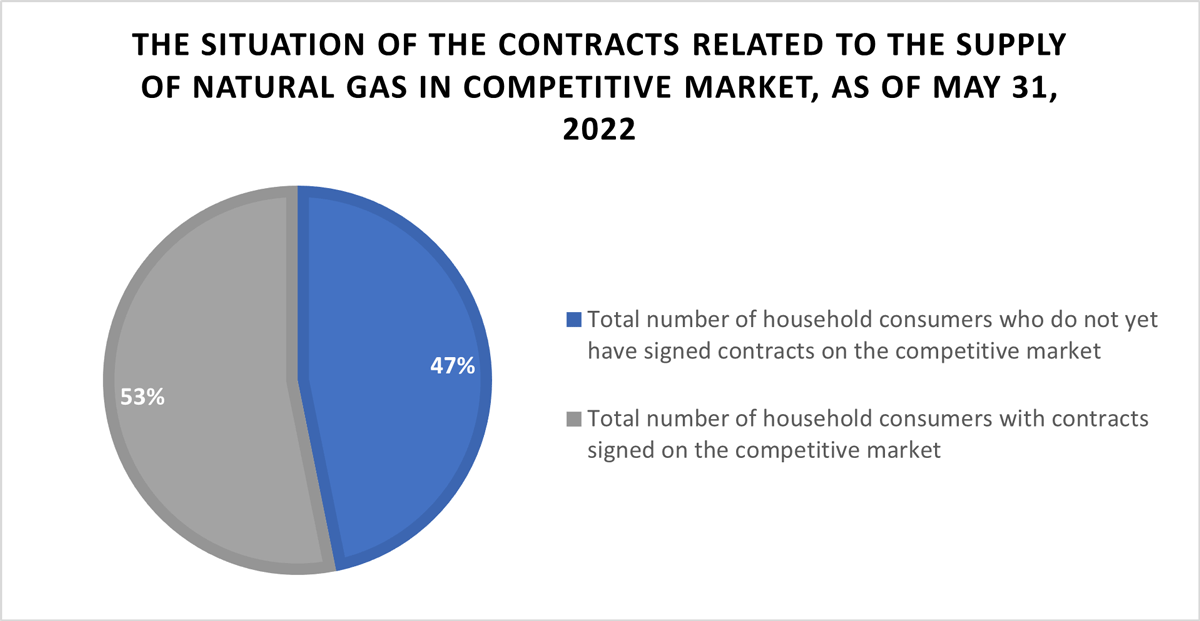Zoltan Nagy-Bege, ANRE Vice President: Key Energy Challenges in Romania
Zoltan Nagy-Bege, Vice President of ANRE, examines the most important challenges facing energy sector in Romania during the energy transition.
The Romanian Energy Regulatory Authority – ANRE – is an autonomous administrative body under the Romanian Parliamentary control, entirely self-financed and independent as regards its decision-making process, organisation and functioning, whose scope of activity is to issue, approve and monitor the implementation of the national-wide binding regulatory framework required for the proper functioning of the electricity, heat and natural gas sectors and markets in terms of efficiency, competition, transparency and consumer protection.
Zoltan Nagy-Bege has more than 15 years’ experience working on energy regulatory activities since 2007 as General Director for gas market, regulations for electricity, renewables, energy efficiency and cogeneration. Since October 2017, he was appointed as ANRE Vice-President for a 5-year term by the Romanian Parliament.
Prior to working with ANRE, Zoltan Nagy-Bege had an important activity since 2000 on managing companies and being regulatory board member for the Romanian administration. He graduated from Economics and Management at the Babes-Bolyai University in Cluj-Napoca in 2000 and completed an MBA in Energy at the Bucharest Academy for Economic Studies in 2021.
In the context of the national and European energy targets, Zoltan Nagy-Bege has carried out an important role regarding the implementation of the current energy legislation and elaborating the secondary regulations, by promoting constructive dialogue with all the stakeholders in the energy regulatory activity and the sustained dissemination of the relevant energy legislation at national and European level.
Mr. Nagy-Bege, what are exactly ANRE’s specific duties and powers?
Zoltan Nagy-Bege: The short answer to this question is: ANRE is the watchdog of the energy sector.
If you want the detailed and official answer, according to the law, the National Energy Regulatory Authority – ANRE is an autonomous administrative authority, with legal personality, under parliamentary control, financed entirely from its own revenues. The Authority is organizationally and functionally independent in terms of taking decisions, having as object of activity the elaboration, approval, and monitoring of the application of the mandatory regulations at national level for the proper functioning of the electricity and heat sector and of the natural gas market, in conditions of efficiency, competition, transparency and consumer protection.
ANRE develops the regulatory system to meet both the challenges of the energy market and the requirements for ensuring a predictable regulatory framework and a stable investment climate to ensure the continuity in energy supply, in safe conditions and at affordable prices.
Also, to ensure the exercise of its competencies across the national territory, ANRE has in its structure, territorial offices without legal personality.
More specific, since we don’t have to set anymore the regulated retail prices for the electricity and natural gas sectors, our main activities consist in the approval of the technical and commercial regulation for the electricity, natural gas and heating sector, authorization and licensing for enterprises, legal entities, and private persons in the same fields.
At the same time, the Authority further sets the regulated tariffs for the network operators and controls their investment and maintenance plans, also having an important role in verification of primary and secondary legislation fulfilment by all market participants in the energy sector. Another relevant role of ANRE which is worthy to be mentioned refers to its role of investigator of the electricity and natural gas wholesale market, to prevent or to sanction any market manipulation attempt. Last but not least, we have an important role to protect the energy consumers rights, to make sure that their rights are properly respected, and they are well informed either by the suppliers or by the network operators.
What are your personal responsibilities, as Vice President of the institution?
Zoltan Nagy-Bege: As Vice President of the Energy Regulatory Authority, I coordinate and manage the activity of two major and relevant General Directorates within ANRE, namely – the General-Directorate for the Energy Market and the General-Directorate for Renewable Sources, Cogeneration and Thermal Energy.
The General Directorate of Energy Market comprises the Directorate of Retail Energy Market and the Directorate of Energy Market Regulations, each of the two ensuring the elaboration of specific secondary legislation on the organization, functioning and development of the retail and, respectively the wholesale electricity and natural gas markets.
On the other hand, the General Directorate for Renewable Sources, Cogeneration and Thermal Energy comprises the Directorate for the Promotion of Renewable Sources and Cogeneration and the Thermal Energy Directorate, two structures that ensure the elaboration, development, and implementation of the regulatory framework in the field of district heating, in accordance with the legal provisions in force. Also, this General Directorate ensures the elaboration and development of the regulatory framework necessary for the promotion of electricity produced in cogeneration and that from renewable energy sources, its implementation, as well as the development of simulation models and the analysis of the operation of the national power system.
Finally, I would like to mention that from the moment of taking over of my mandate of vice president of the Authority and for more than two years, simultaneously with the coordination of the two above mentioned General Directorates, I also had the quality of Head of the Energy Efficiency Department – a structure that has been until 2020 a part of ANRE.
ANRE has stopped coordinating the activity of the Energy Efficiency Department and to have prerogatives in the field of energy efficiency two years ago, once with the approval of the Government Emergency Ordinance no.1/2020, when the Ministry of Economy, Energy and Business Environment took over ANRE’s attributions in the field of energy efficiency, implicitly the Energy Efficiency Department.

How does ANRE collaborate with national and regional institutions/authorities, associations, and economic operators in the energy sector, to ensure harmonization of the regulatory framework for the development of the regional energy market, the rules on cross-border electricity and natural gas exchanges, those on the management and allocation of interconnection capacities?
Zoltan Nagy-Bege: In fulfilling its attributions and without prejudice to its decision-making powers in the regulatory activity, ANRE collaborates with the Competition Council, with the National Authority for Consumer Protection, with the Financial Supervision Authority, with the ministries and with other specialized bodies of the central or local public administration, with associations of electricity and natural gas consumers, with specialized economic operators providing services for the electricity and natural gas sector, with professional associations in the field of electricity and natural gas, with employers’ and trade unions, including through mutual exchanges of information.
ANRE has strengthened the collaboration among regional regulatory authorities through specific task forces dedicated to the implementation of the market network codes, especially the EU Regulation no. 2015/1222 establishing a guideline on the capacity allocation and congestion management which provides guidelines for specific methodologies or terms and conditions related to the cross-border electricity exchanges, those on the management and allocation of interconnection capacities, market coupling. The methodologies related to a specific capacity calculation region are approved at regional level by all the relevant regulatory authorities, considering all the comments/suggestions received during the consultation phase from the transmission system operators (TSOs), nominated energy market operators (NEMOs) or from any other parties involved.
ANRE has a long experience in terms of network development for electricity and gas as well as with the implementation of the TEN-E Regulation, and together with other national regulatory authorities (NRAs), along with ACER actively participates in the elaboration of ten-year network developments plans, including scenario building and cost benefit analysis. The Authority is involved in the selection of the projects of common interest, and it decides on cross-border cost allocation along with ACER and the other NRAs to address particularly the governance of Projects of Common Interest process.
What cooperation and support programs are there in place with regional profile authorities and what is ANRE’s role within them?
Zoltan Nagy-Bege: ANRE continues to maintain and to develop bilateral relations ensuring appropriate communication with the institutions of the European Union and with the national bodies which coordinates the transposition and implementation of the Acquis Communautaire.
At the same time, ANRE undertakes all diligences to ensure a proper representation of the institution within the national structures and working groups/workshops organized at European level, in the field of energy, for the realization of the regulatory framework necessary in the context of an optimal energy transition, involving all sectors for an economic and social development, to achieve climate neutrality by 2050.
Under the provisions of EU Regulation no. 2019/942 of The European Parliament and of The Council establishing a European Union Agency for the Cooperation of Energy Regulators (ACER), ANRE cooperates closely with all the NRAs, eliminating obstacles to cross-border exchanges of electricity and natural gas with a view to achieving the objectives of the Union’s energy policy.
The establishment of the Core Energy Regulators’ Regional Forum is intended to give practical effect by promoting the cooperation among the Core NRAs and to facilitate common and consistent decisions to be subsequently made by each Core NRA at a national level. ANRE’s role is to coordinate and to closely collaborate with the relevant regional regulatory authorities, to approve the regional methodologies or terms and conditions.
The cooperation at pan European level is also ensured through CEER (The Council of European Electricity Regulators). CEER organizes its work through working groups where ANRE has representatives, which may be supported by work streams (WSs) in charge of specific issue.
CEERs main task is to set up cooperation, information exchange and assistance among its Members and Observers, with a view to establishing expert views for discussion with the institutions of the European Union and, in particular, with the European Commission, and also with representative international organizations of other sectors which may be involved.
Within the regular working groups activity, ANREs representatives share the knowledge and expertise acquired in respect of energy market regulation with similar national authorities, organizations or associations from EU and non-EU countries, on its own or through entities it cooperates with. Under the concluded agreements with other members ANRE has twinning projects, shares views and make exchange of expertise for dissemination of best regulatory practices.
For non-EU countries the ANRE closely cooperate at regional level with the Energy Community Secretariat.
What are the most important challenges faced now by the Romanian energy sector during its transition to clean energy?
Zoltan Nagy-Bege: Among the existing challenges regarding the transition to clean energy I would mention first of all the need to revise the National Energy and Climate Plan (NECP) because in the context of the new targets assumed by the European Commission through the ‘Fit for 55’ Package and through ‘RePower EU’, our country must rapidly increase the energy production from renewable sources. In the past recent years, several documents have been issued at European level setting some important targets to produce energy from renewable sources, for 2030. In the first phase of NECP, we set out to build almost 7000 MW of capacity from renewable sources. When the ‘Fit for 55’ strategy has been launched, it became obvious that NECP needed to be revised. Subsequently, recent documents and EU aspirations are enshrined in ‘RePower EU’, which aims to increase its renewable energy target up to 45% by 2030. Having this said, it is obvious that from our national proposal sent to the European Commission (7000 MW), Romania needs to review its plans, being likely that, by 2030, to exceed those 7000 MW initially proposed.
In the context of the decarbonization and Romania’s renewable energy targets for 2030 and 2050 the energy sector’s dilemma is how to set the phase out of the polluting coal fired power plants, and how we will replace those power plants with new clean technologies. For Romania this is not just the energy sector’s challenge, but it is a very delicate social problem too. In the mining sector, which is integrated with the electricity production in coal fired power plants, are employed around 20.000 people.
I would like to specify the fact that, for the future renewable energy production capacities, ANRE has recently issued several measures meant to facilitate the implementation of the projects proposed by the investors in this field, consisting of a set of new rules for connecting new production capacities to the network, and further measures are prepared for grid flexibilization, also with the scope to enable the integration of new renewable production capacities in the energy system.
If I have to name another challenge we are facing in our way to reach the assumed targets, in terms of sure transition to clean energy this would be the war in Ukraine, which is not only severely affecting the European energy markets, but it also raises serious difficulties in terms of attractiveness of any investment in our region (especially in the Black Sea region), which is somehow compromised, even though the potential is very high.
As I have recently declared, a special law for offshore wind is being worked on at national level, this fact encouraging the hope that there will exist a support scheme based on contracts for differences (CfD). I prefer to remain optimistic and to believe that from the Black Sea region, in the not-too-distant future, we can expect several thousand of megawatts in offshore wind, which will also contribute to our national transition to clean energy. At the same time, I must also admit that at this moment there are many unknowns raised by the current war in Ukraine so that one cannot make long-term predictions, so it is preferable to have cautious positions and predictions over how the energy market will evolve and also to take balanced decisions in terms of the steps that need to be made in the context of the clean energy transition.
Security of supply will always be one of the most important goals both for the regulator and the Government. This goal represents even a bigger challenge, because of the European energy crisis and of the Ukrainian war, for the electricity and for the natural gas sector, those two markets being strongly related to this context. Romania, due to its potential in terms of natural gas production, has the possibility to act as a regional player, providing energy security for the region and for Europe. The gas resources in the Black Sea and the onshore deep gas fields are a huge opportunity to raise our domestic gas production and not just to reduce our dependency on imports, but also to contribute to the decrease of Europe’s dependency as well.
As we can see, the short-term measures taken to mitigate the effects of the energy crisis, measures which are targeted to help, first of all, different categories of consumers, are working and they are offering for the consumers some predictability at least until April 2023. Now the focus must be moved over the medium- and long-term measures, which must target the supply side. We need new production capacities, we need investments in the grids, to prepare the energy system for the new wave of renewables. On the other hand, talking about grids, there is still a very important unsolved problem of the electricity distributors and transmission system operator: the costs of electricity required by the technical consumption of the network. As the electricity wholesale prices peaked, the grid operators, just as any other electricity consumer, faced increased costs with the acquisition of electricity. Now, when we are doing this interview, just about half of their costs with the electricity for the technical consumption of the network is covered by the tariffs approved by ANRE. I hope that we will find a solution soon, together with the Ministry of Finance, because the proper functioning of the electricity network, the future investments and the maintenance of the network is crucial not just for the energy sector and Romania’s targets for 2030, but for the whole economy too.
Government programs to boost purchases of electric vehicles, the rising supply by manufacturers and, of course, the ever-increasing number of supporters have contributed to an accelerated growth of electric vehicles sales in Europe. At Energy Tech Day 2022, you launched a question, at least worrying, on the charging station infrastructure and the stability of the energy system in Romania. There are currently sufficient investments/European funds allocated to improve the distribution network (low/medium voltage)?
Zoltan Nagy-Bege: The public charging stations network for electric cars in Romania is constantly evolving and has the potential to grow at a very fast pace in 2022, but for now it is underdeveloped compared to Western European markets. There are two aspects to be considered: the financing possibilities and the technical limitations.
In terms of financing, there are plenty of possibilities through the prism of the National Recovery and Resilience Plan or even through the State Budget, but for some enterprises there are possibilities of non-refundable financing ensured by the Ministry of Energy, too. Giving the fact that it is a promising sector, with huge potential, confirmed by the EU’s decision too, to forbid from 2035 the registration of any new thermal engine car. I think that it won’t be a problem to obtain funding for such projects. From the Modernization Fund there are already 1,4 billion Euros allocated for the distribution and the transmission network development. Charging stations are investments which are generating an important increase of electricity consumption, which means that the investment made by the distributors in the grid development is recovered easily and relatively fast. Fast recovery of investments is the best incentive for the distribution companies to take the decision to invest in the reinforcement of the grid and the connection of a consumer or a charging station.
The technical limitations are related with the distribution grid development because those charging stations must be connected to the distribution networks, and they have a potentially high consumption. The location of the charging stations must be chosen carefully, taking into consideration the available grid capacity, but we need involvement from the distribution companies too, to identify the locations with high potential or high demand for charging station and to reinforce the grid in those areas.
In terms of charging stations installed at households or at enterprises and offices, digitalization will have an important role, because the energy consumption and the use of the electricity network must be optimized. In the future, when most of the households, residential areas or offices will have charging stations and the peak hours for charging will generate peak hours in the electricity consumption, we will need some kind of control over that consumption. That control is impossible without digitalization.
ANRE announced that the platform for changing the energy supplier within 24 hours would be ready this year, so that the end-customer will be able to reduce the time for charging the electricity and/or natural gas supplier from 21 days to one day. What other innovative digital solutions does ANRE plan to simplify the administrative procedures designed to contribute to the development of a dynamic and competitive energy market?
Zoltan Nagy-Bege: Indeed, ANRE has a financing contract with the Ministry of Investments and European Projects, worth 20 million RON, for the developing both a database and an application/software to facilitate the technical process of changing the supplier in 24 hours.
Now, the change of supplier in Romania it is made in 21 days. The European legislation stipulates that by 2026 the change of supplier by the final consumer must be done within a maximum of 24 hours. Without the system’s digitization it is not possible to comply with this European provision and to change the supplier within 24 hours. We have more than 9 million electricity and more than 4 million gas consumers in Romania. Even if just a fraction of them would like to change their supplier, without a proper database and digitalization is impossible to manage such number of requests in 24 hours.
To put into context, the need to develop such a platform for changing the supplier and in order to better present the evolution of the number of contracts concluded in the competitive market of electricity and natural gas, I will try to give some figures and to provide a graphical representation of the situation of electricity & natural gas supply contracts, based on the data provided by the suppliers and processed by ANRE.
Thus, regarding the electricity market, as of May 31st, 2022, out of the total number of 8,871,823 consumption points belonging to household consumers in the suppliers of last resort portfolios, 60% had concluded contracts related to the electricity supply in the competitive market.

On the natural gas market side, as of May 31st, 2022, out of the total number of 4,154,481 household consumers, 53% had concluded contracts related to the natural gas supply in the competitive market.

It is very likely that this Fall we will have this system put in place, a system which will contain a database with all consumers and suppliers in Romania. The final consumer will be able to access the application and to change the supplier, benefiting in the application at the same time from an integrated energy price comparation tool (PCT). Most probably Romania will be one of the first in Europe to permit the change of supplier in 24 hours.
Also, another important step that ANRE has successfully taken, and which deserves to be placed among the most significant ones is that the Authority with its over 10 IT experts managed to digitalize almost all the activity processes within the institution, developing the integrated IT system that will help the Authority cope with the transformations in the energy sector, changing the way we work, the way we are gathering data from the companies and from the markets, the way we are analysing and using those data in our decision-making processes.
Romania, a country with one of the most balanced energy mixes in Europe, is currently facing, as most states in the region, challenges relating to climate change, EU regulations, security of energy supply. In your opinion, what would be Romania’s chance on the path to sustainability and climate neutrality – the exploitation of Black Sea gas fields or those onshore (Caragele field), nuclear energy, increasing the storage capacity, accelerating decarbonization with the help of renewable energy sources…?
Zoltan Nagy-Bege: Indeed, Romania is very gifted in terms of energy resources, having at the same time a well-balanced energy mix.
The causes of this energy crisis are so complex, that it is impossible to have a ‘silver bullet’ for the problem. We need a close cooperation with the other member states of EU, and we must consider every option on the table. This is where Romania’s balanced energy mix and our potential could have an important role. We are not limited to one or two resources; we have multiple options.
In the past 15 years, approximately 80-85% of Romania’s gas consumption has been covered by domestic production. The exploitation of natural gas in the Black Sea region will definitely strengthen Romania’s capacity to provide the need for natural gas for domestic consumption and thus to achieve the goal of being energy independent. Covering most of the natural gas demand from our own resources makes Romania a much more competitive market, especially during this period with overlapping crises. The Offshore Law allows the continuation of natural gas exploitation projects in the Black Sea region, with prospects to transform Romania not just independent on imports, but into a gas exporter in the coming years. We do not know in which direction the geopolitics of the world will go in 10-20 years from now on, but it is important to reduce the dependence on imports, currently on gas imports from Russia, and we are lucky to have a solution for that.
Another solution to fulfil this desideratum is without doubt promoting the production of energy from renewable sources. If Europe really wants to become independent from energy imports, the renewable energy cannot be ignored. It is the only energy source, which is available almost everywhere in Europe, it is one of the most affordable energies at this moment, all the European legislation and market mechanisms are favouriting renewables, it is just a matter of time to be the dominant energy in every European Member State. Even if natural gas and nuclear energy are still raising some debates, in the context of the energy transition and of the energy sector decarbonization they will have an important role in the future. Romania is lucky once again, because natural gas and nuclear energy is not contested by the society (yet).
I’m convinced that the energy crisis and the war in Ukraine will change mentalities across EU and will change the whole energy sector. Romania has the natural potential to be an actor, not just a bystander in this process of changing, and I hope I will have the opportunity to see Romania playing a lead role. Why not?

How should the current legislative framework be improved or what does it lack to encourage investors to choose Romania to develop their businesses?
Zoltan Nagy-Bege: At the national level there are needed joint efforts, to use the funds to which we will have access through the NRRP. Now ANRE has the regulatory framework prepared to attract new investments. I am referring first of all to the possibility of concluding bilaterally negotiated contracts or PPAs, which are allowed under the provisions of the EU Regulation No. 943/2019 on the internal market for electricity, but recently, at the end of 2021, once with the transposition of the EU Directive no. 944/2019 one of the oldest and most sensitive problem of the energy sector has been finally corrected; the trading obligation on the centralized market for the wholesale market participants was abolished. It is hard to evaluate the effect of the centralized market obligation, introduced in the legislation in 2012, but probably the lack of investments in new production capacities in the period between 2016-2022 is one of the negative effects of that provision.
All the signals show the fact that there are already several new investors interested to build thousands of MW through new production capacities, most of them renewables. We can see this in the connection permits issued by or requested to/by the network operators. The regulation regarding the connection to the grid of the new power plants was amended this year by ANRE, generally in favour of the investors, targeting to set a simplified, clear, transparent, and non-discriminatory rules for those interested to build new production capacities.
For new investments in electricity production the biggest challenge will be the connection to the grid. At this moment, having historically high electricity prices all over Europe, financing is not a challenge for investors. They know how to attract financing, financial institutions are confident and very much interested in the energy sector because of the high prices and of the growing demand. The bottle neck will be the grid development and the grid flexibilization. I salute the decision of the Ministry of Energy to allocate grants from the Modernization Fund (approximately 1,4 billion EUR) for the network operators. The non-refundable financing is welcomed by the network operators, who are facing financial difficulties in their acquisition process of electricity for the technical consumption of the network, because of the high electricity prices. The investments financed this way could relieve the investors in new production capacities from paying considerable amounts for grid reinforcements.
New technologies will be encouraged and embraced. An example is hydrogen, which will become a fuel to be considered in the future and it is possible that this energy crisis will accelerate this process. On the side of technical regulations related to hydrogen, ANRE has already started discussions internally. We benefit from consultancy from the World Bank and it seems that they will help us with a set of materials regarding the technical regulations regarding hydrogen. We are talking about networks, the preparation of gas networks for hydrogen injection, production, transport, and all the technical standards needed. On the licensing side, the regulations regarding the issuance of licenses have already been modified since last year. From this point of view, I don’t think we have a problem, but it is definitely a much bigger challenge to have technical regulations to prepare us to use and to produce hydrogen, in order to inject it into the networks.
There is one more important thing investors are looking for: competition on the market. Although, now because of the protection measures taken by the Government, the market, especially the retail market is not functioning properly, keeping the wholesale and retail market mechanisms functioning to keep competition on the energy markets it is crucial. For investors a predictable environment means an energy market based on healthy market mechanisms and pure competition, without interference in the price formation. This doesn’t mean that for a certain period, we cannot have some interventions on the market, targeting the protection of the consumers, but those interventions must respect the provisions of the EU legislation: shall be limited in time and proportionate, clearly defined, transparent, non-discriminatory, and verifiable, shall pursue a general economic interest and not go beyond what is necessary to achieve that interest, etc.
Experts predict a dim future of energy prices in Europe. For example, we refer to the price of electricity under contracts until the end of 2022, as well as the price for 2023, prices by up to 40% higher, money which will be reflected in the final bills to consumers. What is your take on this situation and what are the necessary measures to counteract it, without coming at odds with the European legislation? Is energy efficiency a solution?
Zoltan Nagy-Bege: We all know (or at least, most of us) that the measures now in place stipulated in the GEO no. 27/2022, with subsequent modifications and completions, are short-term measures. Pragmatically speaking, these measures are not sustainable in the long run, given the fact that we are talking about billions of RON spent on a support scheme. As I know, there is no government in Europe that is able to support such a scheme from the state budget on long term, so before those measures expire, we have to act and find solutions to rebalance the energy supply and demand. There are two ways to do that: to increase the supply or to lower the demand. The best would be the combination of those two.
Let’s take them one by one: raising the supply. The current energy prices are extremely attractive for investors, the European Union’s decarbonization targets are very clear and accepted by most of the Member States, the need, and the desire of Europe to lower its dependency on energy imports is stronger than ever. All these circumstances will attract quickly significant investments in the supply side, but we can count on different financing mechanisms launched by the European Union: The National Resilience and Recovery Fund, the Modernization Fund, the Just Transition Fund, etc. Given all this, I’m very confident that financing the new wave of renewables and other clean production capacities, won’t be a problem. There are also other aspects, too: firstly, we must be aware of the fact that after the current energy crisis passes, the importance of having a mechanism capable of allowing the competition in the market again will be more important than ever, given the fact that the measures taken lately at national level in order to support the final consumers have cancelled the competition in the energy retail market. Even during the crisis, the investments in new production capacities is very important the investment environment, including the legislative framework, the regulations regarding access to the network, or the access to the markets. Investors will search not just for the best locations for their investments technically speaking, but for the friendliest places in terms of permitting, access to human resources for construction and operation, trading conditions on the market, fiscal and regulatory predictability and stability, etc. We have to make an effort to improve the investment environment if we are expecting reliable investors in the energy sector.
Of course, beside investments in new production capacities, which will show results in the medium and long-term, energy efficiency represents a sure and relatively quick way to reduce the costs of energy bills but unfortunately, in Romania we are far from the European average when talking about energy efficiency or energy intensity – whether we refer to industrial or domestic consumption – being above the European average. Speaking about increasing energy efficiency among final consumers, I think that the role of the state is crucial, being the factor that can teach the final consumers how to be aware of how we can save energy. For example, promoting best practices or sharing some tips & tricks related to energy efficiency improvement might be a good start. The contribution of each final consumer in terms of acquiring some easy measures to increase energy efficiency will help and it is highly encouraged. Unfortunately, price capping for 90% of the consumers is not a way to encourage energy conservation, the consumers are rather tempted to waste energy.
In order to cultivate some ‘energy saving habits’, final consumers must not give up their comfort they are used to, but I strongly believe that small changes of their energy consumption behaviour can give results. Also, if developed, investments and financing related to increasing energy efficiency will have for sure a multiplier effect its positive results being quickly seen in the economy, in final consumer’s energy bills and in terms of CO2 emissions decrease.
Fortunately, Romania is offering various options for financing energy efficiency measures for household and industrial consumers as well. There are possibilities for household consumers offered by the Ministry of Environment in terms of accessing grants for photovoltaic power plants, vouchers for new, electrical household appliances with high energy efficiency level, building refurbishment and insulation for public institutions. Also, through the Ministry of Economy there are possibilities to access grants for PV panels and EV charging stations for small and medium enterprises. There are multiple financing possibilities with non-refundable financing, but even private investments could have a spectacular payback period due to the high electricity and gas prices.
Having so much financing possibilities, I think is much more important to work on rising the awareness. For years, Romanian energy consumers had relatively low prices, which doesn’t encourage energy conservation. The situation changed drastically last year, and I don’t see a significant price decrease for the next two or three years. Energy efficiency is not just economically justified, now more than ever, being beneficial in terms of security of supply – which is an important argument during the energy crisis and gas shortage- but it is the only responsible way to protect the environment.

What is your opinion on the regulation of energy prices in Romania?
Zoltan Nagy-Bege: In these difficult times a lot of experts and politicians are lobbying for regulated energy prices, which I agree, might be a solution on a short term to protect the most exposed and vulnerable consumers, if it is targeted correctly and if it is applied in compliance with EU legislation. I still believe that in medium- and long-term, competition is the only tool which guarantee fair prices for the energy consumers. We must keep the market mechanisms which will keep or bring back competition to the energy sector once the energy crisis is over.
I have said it before and I say it again, that I firmly believe that prices can be regulated under certain conditions, not under any conditions. Even if the price of natural gas and electricity would have been regulated, this would not have been a solution to the current price peak, which is a general problem all over Europe. I must mention that even if the prices were regulated, ANRE would have been put in a position to recognize the suppliers’ costs with the energy and gas acquisition. We must remember the principle of regulation of cost recognition, which would have made wholesale prices eventually reach the final consumers.
And if I am allowed an exercise of imagination, if I try to project a return to the regulated market to me this equal throwing Romania years back, thus becoming an unattractive member state for the much-needed investments, respectively an EU member state that will no longer be able to meet any of its goals.
What would be the balance of these five years of mandate within ANRE?
Zoltan Nagy-Bege: It was a challenging mandate, five long years with difficult periods, but with interesting tasks and rewarding results, too. The Authority was forced sometimes to navigate between the European and the national legislation, which was not always compliant with the EU’s vision in terms of electricity or gas markets.
Regarding the natural gas market, the biggest achievement was to completely redesign the wholesale market. If for the long-term contracts there was an interest on the market and incentivised by the centralized market obligation (CMO) it grew nicely, the market needed day ahead, intraday, and balancing market mechanisms. All those markets created in 2018 started to work properly, and now they are mature, well-functioning, representing core elements of the Romanian natural gas wholesale market. It was our initiative to change the CMO with a Gas Release Program (GRP), which was launched in June 2020. The evolution of the wholesale market in terms of volumes and participants was quite spectacular after the GRP was applied.
The liberalization of the electricity and natural gas retail market was one of the most challenging problems during my mandate. It was a learning process both for me and most of my colleagues, for the suppliers and the distribution network operators involved in the change of supplier process, and nevertheless for the consumers. Unfortunately, the energy crisis and the measures taken by the Government to protect certain consumers derailed the retail market, and at this moment we cannot have an evaluation on the effects of the market liberalization. One thing is sure: the consumers have access to incomparably more information about their rights and their possibilities on the gas and electricity retail market than they had a few years ago, when we had the first liberalization attempt. This high degree of information will help them in the future no matter in which direction the energy market will evolve.
We made several other changes in the legislation regarding the connection rules to the electricity and natural gas grids, regarding the investment obligations of the network operators, regarding renewables, prosumers, district heating, etc.
Overall, I think that during my mandate we have successfully managed to keep a good relationship with all the stakeholders in the energy sector, a relationship built on a transparent and constructive dialogue and debates with the companies in the energy sector, the result being an EU compliant legislative framework which, even in the current given circumstances, still makes the Romanian energy sector viable and attractive for investors.







